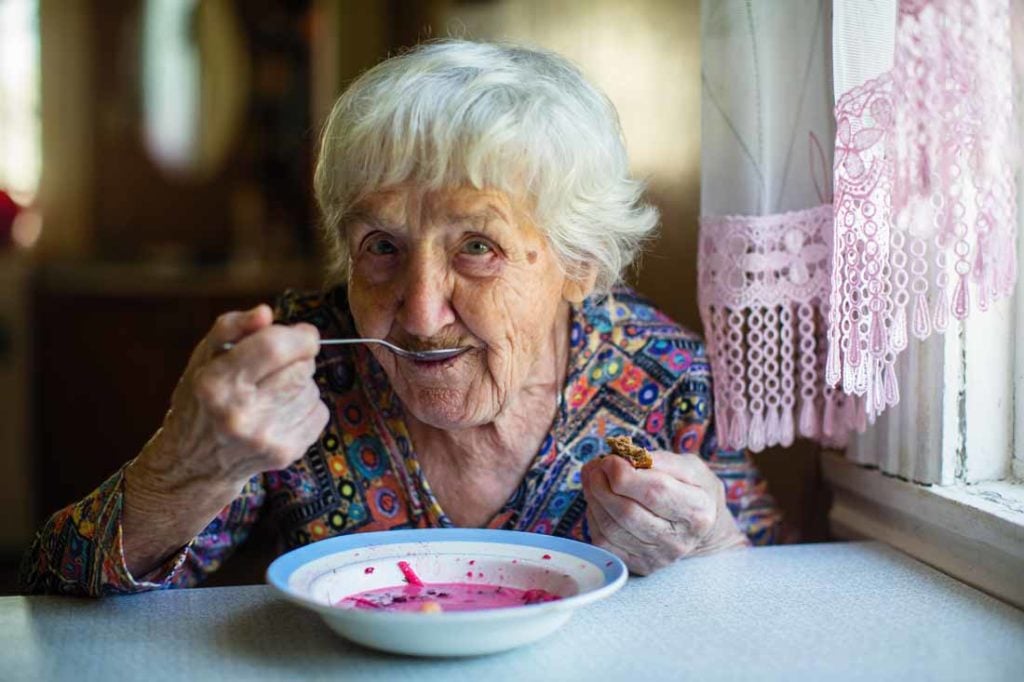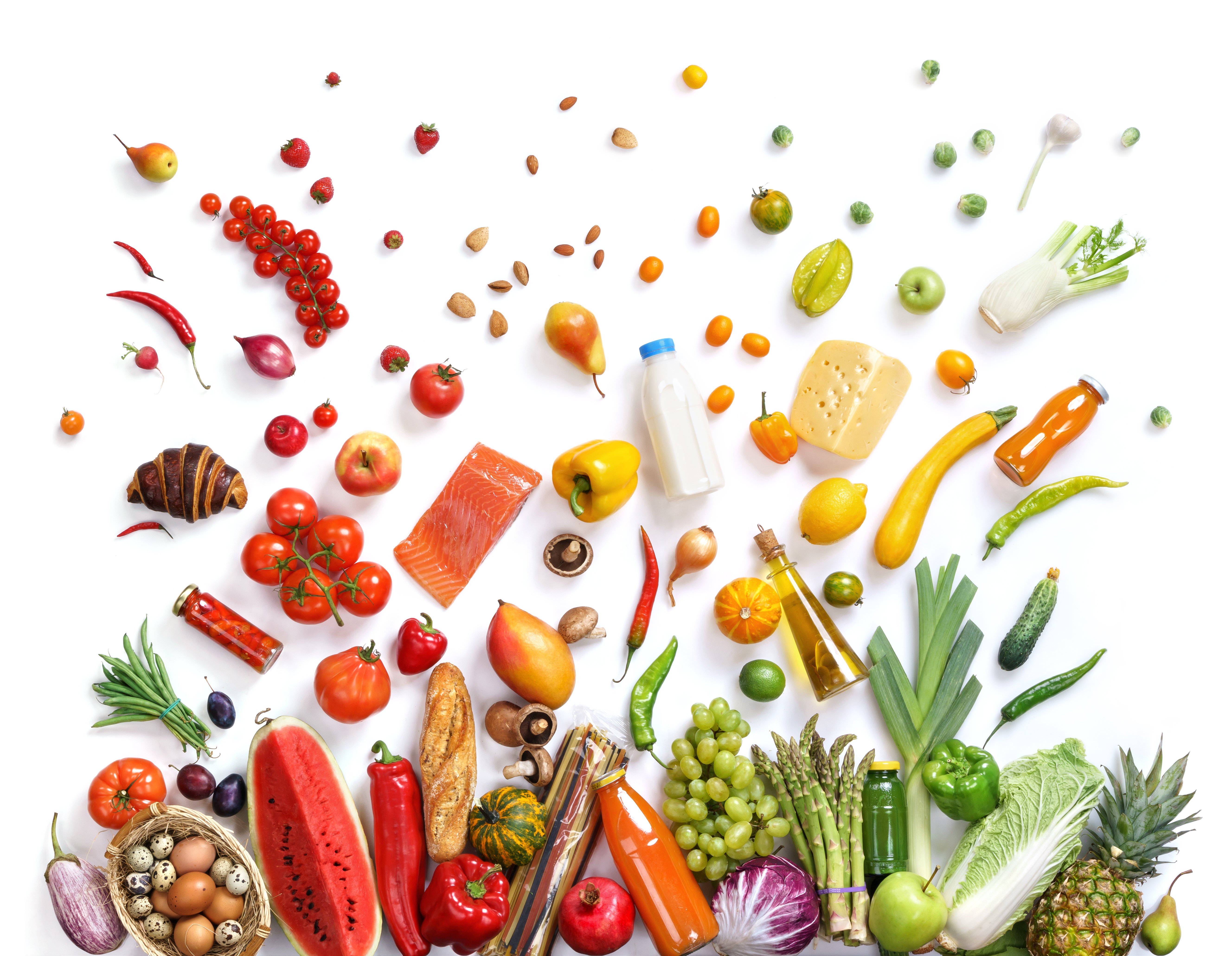Malnutrition is a serious elderly health issue that is on the increase. People aged 65 years and over are more likely to be malnourished compared with any other age group. Good nutrition is critical to overall health and well-being, yet many older adults are at risk of inadequate nutrition. It’s important to know the causes of malnutrition in order to understand how to promote a nutrient-rich diet.
Causes of Malnutrition
As we age, our bodies require fewer calories, yet we require more protein, calcium, B vitamins, and other nutrients. Unfortunately, there remains a surprising lack of awareness about the specific dietary needs of the elderly.
The causes of malnutrition might seem straightforward — too little food or a diet lacking in nutrients. In reality, malnutrition is often caused by a combination of physical, social and psychological issues. The elderly are more susceptible to malnutrition because not only do they have different nutritional needs than younger adults, they also take more medications, and have higher rates of chronic medical conditions such as diabetes and heart disease. They also may be experiencing a change in their taste buds, a lack of appetite, or depression and may be reluctant to alter habits. My mother continued using low-fat spreads and sauces in her eighties. She wouldn’t question changing her habits after many years despite being too thin!

What are the signs should you look out for?
- Struggling to eat Difficulty chewing or swallowing, poor dental health, or limited ability in handling tableware can contribute to malnutrition.
- Sudden weight loss A sudden weight change, over the past 6 months. Warning signs include ill-fitting clothes or jewellery like rings.
- Poor concentration Tiredness can be a sign that the individual is not getting the essential nutrients for the body to generate enough energy
- Taking a long time to recover from infections – A lack of vitamins and nutrients will slow down the recovery process.
- Forgetfulness – Behavioral or memory problems from Alzheimer’s disease or related dementia can result in forgetting to eat, not buying groceries or other irregular food habits.
- Reduced social contact. Older adults who eat alone might not enjoy meals as before and lose interest in cooking and eating.
- Limited access to food. Adults with limited mobility may not have access to food or the right types of food.
- Depression. Grief, loneliness, failing health, lack of mobility and other factors might contribute to depression — causing loss of appetite.
- Excessive Alcohol Too much alcohol can interfere with the digestion and absorption of nutrients. A comforting drink too many that becomes a habit, especially when you are lonely, can lead to poor eating habits.
Changes in taste, smell and appetite generally decline with age, making it more difficult to enjoy eating and keep regular eating habits. Disease-related inflammation and illnesses can contribute to declines in appetite and changes in how the body processes nutrients. These reasons can lead to an overall lack of energy, muscle weakness, bruised or cracked skin, wounds that are slow to heal and overall ill health.
How to prevent and manage malnutrition?
For many older people, the term ‘malnutrition’ may feel very negative as they may associate it with neglect or poverty. It is much more positive to talk about ‘keeping well’. One big difference any friend or family member can make is to make meals enjoyable and sociable when you can, eating can be a very lonely experience. Try to visit during mealtimes. Other key things you can do include:
- Monitor weight and observe eating habits. Are they struggling to eat certain foods? What foods do they enjoy?
- Encourage him or her to eat nutritious foods. Spread peanut butter or other healthy spreads on toast and crackers, fresh fruits, and raw vegetables. Sprinkle finely chopped nuts or on yoghurt, fruit, and cereal. Try roasting nuts like hazelnuts or almonds they taste so much better!
- Enrich foods. Add extra egg whites to scrambled eggs and omelettes, and encourage the use of whole milk. Add cheese to sandwiches, vegetables, soups, rice, and noodles.
- Liven up bland foods. Taste buds change and their favourite meal may now seem unappealing making them rather fed up with eating. Add lemon juice, herbs, and spices to foods.
- Eat high energy high protein foods. A piece of fruit or cheese, peanut butter by itself or as a spread, or a fruit smoothie can provide healthy nutrients and extra calories.
- Help with meal plans – help with food shopping or planning.
- Encourage regular physical activity. Even light daily exercise can stimulate appetite while strengthening bones and muscles.
- Improved oral care. My father’s teeth were in a dreadful state and he really had no way of chewing. Chewing became a real chore and utterly exhausting for him. The solution for him was some new dentures.
- Boost hydration for overall good health. The elderly should be drinking 1.7 litres or 6-8 glasses of healthy fluids per day.
- Drinking more nourishing fluids, such as milk, soups. There are some good nutritional supplements in small manageable cartons with straws. These should not replace but supplement meals.
- Use local services that provide at-home meal deliveries, in-home visits from nurses or dietitians. Meals on Wheels is a good starting point. There are some fantastic frozen ready meal companies that will deliver to you like Cook.

